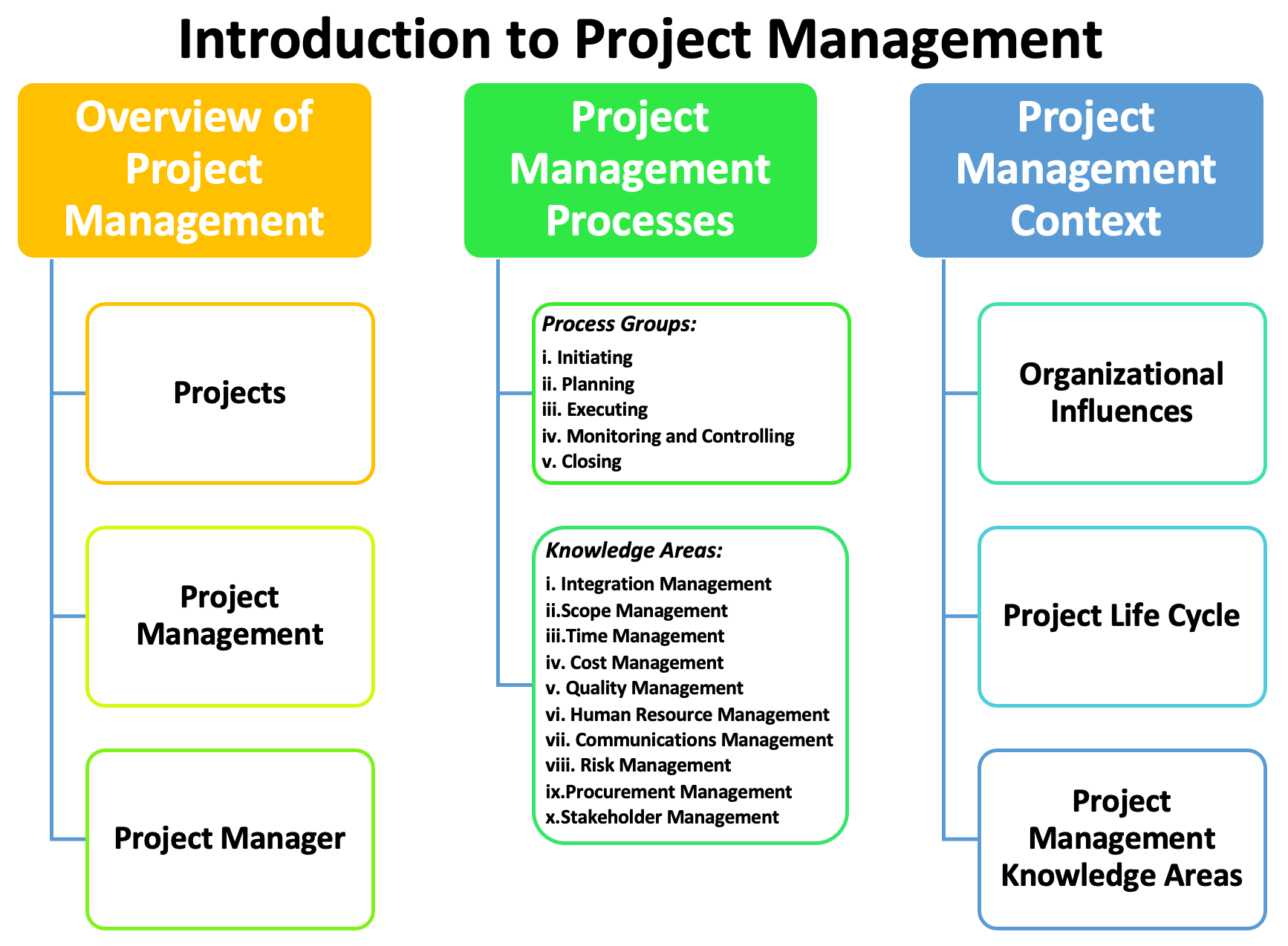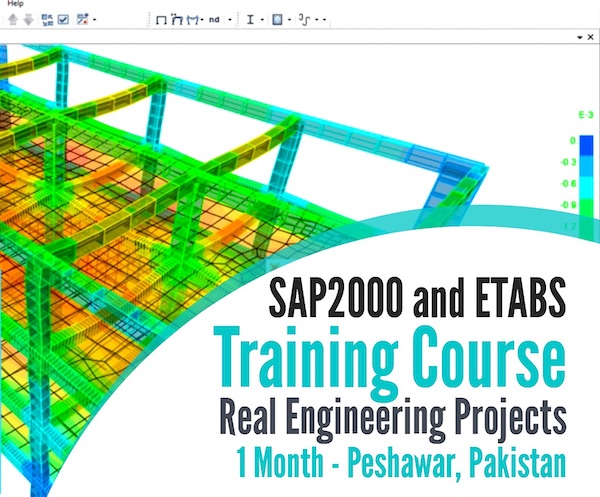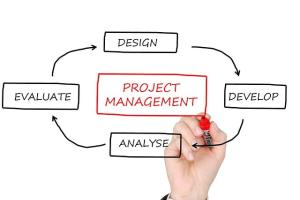Introduction to Project Management - Overview

Introduction to Project Management
1. Overview of Project Management:
Project management involves planning, organizing, and controlling resources to achieve specific project objectives within defined constraints, such as time, cost, scope, and quality. It is a structured approach to delivering projects effectively and efficiently. Here are key components of project management:
a. Projects: Projects are temporary endeavors undertaken to create a unique product, service, or result. They have defined objectives, specific start and end dates, and limited resources. Example: Building a bridge, developing a software application, organizing an event, etc.
b. Project Management: Project management refers to the application of knowledge, skills, tools, and techniques to project activities to meet project requirements. It encompasses various areas, including scope management, time management, cost management, quality management, risk management, etc. Example: A project manager leading a team of developers to build a mobile application by defining the project scope, setting milestones and deadlines, managing costs, ensuring quality, and mitigating risks.
c. Project Manager: A project manager is responsible for the overall success of a project. They coordinate resources, communicate with stakeholders, manage risks, and ensure that project goals are achieved within the defined constraints. Example: A project manager overseeing the construction of a new office building, collaborating with architects, engineers, contractors, and communicating progress to the client.

2. Project Management Processes:
Project management processes are a series of interrelated actions and activities that are performed to achieve project objectives. The Project Management Institute (PMI) defines five process groups and ten knowledge areas within these groups:
a. Process Groups:
i. Initiating: This group includes processes that define a new project or a new phase of an ongoing project. It involves activities like identifying stakeholders, developing the project charter, and conducting feasibility studies.
ii. Planning: The planning group comprises processes to define project objectives, determine project scope, develop strategies, and create a comprehensive project management plan. It involves activities like creating a work breakdown structure (WBS), estimating resources and durations, and developing a schedule and budget.
iii. Executing: The executing group involves processes to complete the work defined in the project management plan, coordinate resources, and manage project activities. It includes activities like team management, procurement, quality assurance, and communication.
iv. Monitoring and Controlling: This group focuses on monitoring project progress, measuring performance, and taking corrective actions when necessary. It involves processes like performance reporting, change control, risk monitoring, and quality control.
v. Closing: The closing group includes processes performed to formally close a project or a project phase. It involves activities like obtaining project sign-off, conducting project reviews, archiving project documents, and capturing lessons learned.
b. Knowledge Areas:
i. Integration Management: Integration management ensures that various project management processes are properly coordinated and integrated.
ii. Scope Management: Scope management involves defining, controlling, and managing the project scope to deliver the intended objectives.
iii. Time Management: Time management focuses on developing and controlling the project schedule, ensuring timely completion of project activities.
iv. Cost Management: Cost management involves estimating, budgeting, and controlling project costs throughout the project lifecycle.
v. Quality Management: Quality management ensures that the project delivers the expected level of quality and meets customer requirements.
vi. Human Resource Management: Human resource management involves acquiring, developing, and managing project team members.
vii. Communications Management: Communications management ensures effective and timely communication within the project team and stakeholders.
viii. Risk Management: Risk management involves identifying, assessing, and mitigating project risks to minimize their impact on the project.
ix. Procurement Management: Procurement management deals with the processes of acquiring goods, services, or resources from external sources.
x. Stakeholder Management: Stakeholder management focuses on identifying, analyzing, and engaging project stakeholders throughout the project lifecycle.
3. Project Management Context:
Project management operates within a broader organizational and environmental context. Understanding this context is crucial for effective project management. Key aspects of project management context include:
a. Organizational Influences: Project management is influenced by the organization's structure, culture, and governance. The organizational structure determines reporting relationships, decision-making processes, and resource allocation. The organizational culture sets the norms, values, and behaviors within the organization. Governance frameworks provide guidelines and policies for project management practices. Example: A hierarchical organization may have a centralized decision-making structure, while a matrix organization may have a blend of functional and project-based authority.
b. Project Life Cycle: Projects pass through different phases, from initiation to closure. The project life cycle defines the stages a project goes through, and each phase may have different deliverables, objectives, and stakeholders. Example: A software development project may have phases like requirements gathering, design, development, testing, and deployment.
c. Project Management Knowledge Areas: The knowledge areas provide a framework of specialized knowledge and best practices required for effective project management. These areas cover various aspects of project management, such as scope, time, cost, quality, risk, etc. Example: A project manager using knowledge from the risk management area to identify potential risks, assess their impact, and develop mitigation strategies.
Understanding the project management context helps project managers navigate the organizational landscape, adapt project management processes to specific projects, and ensure alignment with organizational goals and strategies.









